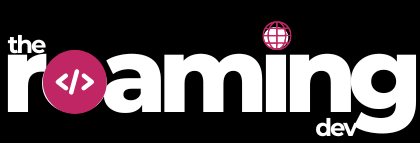In this blog post, I’ll highlight the top 10 cloud accounting software for 2023.
As we move into 2023, businesses continue relying on cloud-based solutions for their accounting needs.
What is cloud based accounting software?
Cloud accounting software allows you to access your financial information anywhere, anytime, and on any device.
Cloud-based accounting software is a type of accounting software that is hosted on remote servers and accessed over the internet through a web browser or mobile app.
So instead of installing the software on your computer, you can log in to the software provider’s website and access your accounting data from anywhere, anytime, as long as you have an internet connection.
What Are The Benefits of Cloud Accounting Software?
Cloud-based accounting software offers several benefits over traditional, on-premises accounting software. These include:
- For one, it allows for more flexible and remote working, as users can access their accounting data from anywhere.
- Additionally, cloud-based accounting software typically offers automatic software updates, which means users always have access to the latest version of the software without having to manually download and install updates.
- Another benefit of cloud-based accounting software is that it is typically more cost-effective than traditional accounting software. With cloud-based accounting software, there are no upfront costs for software licenses or hardware, and users typically pay a monthly subscription fee based on the number of users and features they need.
Overall, cloud-based accounting software provides a more convenient, cost-effective, and flexible solution for managing your business finances compared to traditional, on-premises accounting software.
What Are The Disadvantages of Cloud Based Accounting Software?
While cloud-based accounting software offers many benefits, there are also some potential disadvantages to consider.
Here are a few to keep in mind:
- Internet Connectivity: Cloud-based accounting software relies on internet connectivity to access your data. A slow or unreliable internet connection could result in slower performance or even temporary loss of access to your data.
- Security Concerns: Storing your financial data on a remote server you don’t control can raise security concerns. While cloud-based accounting software providers generally implement robust security measures, such as encryption and two-factor authentication, there is always a risk of data breaches or unauthorized access.
- Customization: Some businesses may require highly customized accounting software to meet their specific needs. While many cloud-based accounting software providers offer a range of features and integrations, they may only partially meet some businesses’ needs.
- Dependence on Service Provider: When using cloud-based accounting software, you rely on the service provider to maintain and update the software. If the provider experiences technical difficulties or goes out of business, you could be left without access to your financial data.
- Subscription Costs: While cloud-based accounting software can be more cost-effective than traditional accounting software, the ongoing subscription costs can add up over time. Businesses should consider costs and benefits carefully before committing to a cloud-based accounting software provider.
In conclusion, while cloud-based accounting software offers many benefits, there are also potential disadvantages to consider. Therefore, it’s essential to carefully evaluate your business’s needs and weigh the pros and cons before deciding whether cloud-based accounting software is right for you.
The 10 Best Cloud Accounting Software In 2023
Here’s a review of the ten cloud-based accounting software that would suit your business in 2023.
1. Xero
Xero is a popular cloud accounting software that offers an extensive range of features, including invoicing, payroll, bank reconciliation, and financial reporting.
It’s highly scalable and suitable for small to large businesses.
Pricing
Xero 3 pricing plans, with options starting at $25 per month.
Cons
Some users may find it slightly more expensive than other cloud accounting software.
2. QuickBooks Online
QuickBooks Online is a leading cloud accounting software offering various features, including invoicing, payroll, and tax preparation.
It’s highly scalable and suitable for small to large businesses.
Pricing
QuickBooks Online offers competitive pricing plans, with the ability to add additional features and users as your business grows.
Cons
However, some users may find it more complicated than other cloud accounting software.
3. Wave
Wave is a free cloud accounting software that offers invoicing, accounting, and receipt scanning features. It is one of, if not the best free cloud based accounting software for small businesses in 2023.
I have been using it for close to 4 years now, and would highly recommend it for digital nomads, freelancers and any small business.
It’s highly scalable and suitable for small businesses.
Pricing
Wave’s pricing plans are flexible, with options to add additional features and users.
Cons
Users may need more advanced features, such as inventory management.
4. Zoho Books
Zoho Books is a cloud accounting software that offers invoicing, banking, and financial reporting features. It’s highly scalable and suitable for small to medium-sized businesses.
Pricing
Zoho Books offers competitive pricing plans, with a free option for individual users.
Cons
However, some users may need more customization options.
5. FreshBooks
FreshBooks is a cloud accounting software that offers invoicing, expense tracking, and time tracking features.
It’s highly scalable and suitable for small businesses.
Pricing
FreshBooks offers multiple pricing plans, starting at $17 per month.
Cons
Lacks advanced features like inventory management.
6. Kashoo
Kashoo is a cloud accounting software that offers invoicing, expense tracking, and financial reporting features. It prides itself as the World’s Simplest Accounting Software targeted at small businesses, developers, designers etc.
It’s highly scalable and suitable for small businesses.
Pricing
Kashoo offers 3 pricing plans, with options starting at $27 per month.
Cons
Does not have the more advanced features like payroll management.
7. Sage Business Cloud Accounting
Sage Business Cloud Accounting is a cloud accounting software that offers invoicing, banking, and financial reporting features.
It’s highly scalable and suitable for small to medium-sized businesses.
Pricing
Sage Business Cloud Accounting offers competitive pricing plans for different business needs starting at $11 per month
Cons
Some users may find it more complicated than other cloud accounting software.
8. MYOB Essentials
MYOB Essentials is a cloud accounting software that offers invoicing, payroll, and financial reporting features. It’s highly scalable and suitable for small to medium-sized businesses.
Pricing
MYOB Essentials offers flexible pricing plans starting at $15 per month, with options to add additional features and users.
Cons
Some users may find it slightly more expensive than other cloud accounting software.
Also Read: 10 Best Cloud-Based ERP Systems in 2023
9. FreeAgent
FreeAgent is a cloud accounting software that offers invoicing, expense tracking, and financial reporting features. It’s highly scalable and suitable for small businesses.
Pricing
FreeAgent offers very friendly pricing including 50% off for the first 6 months.
$10 /month for 6 months, then just US $20 /month
Cons
Lacks advanced features, such as inventory management.
10. Nutcache
Nutcache is a cloud accounting software that offers invoicing, time tracking, and project management features. It’s highly scalable and suitable for small to medium-sized businesses.
Pricing
Nutcache has 3 pricing plans starting at $12.49 per user per month.
Cons
Nutcache lacks more advanced features like payroll management.
Conclusion
Choosing the right cloud-based accounting software for your business can be challenging. It’s essential to consider pricing, scalability, and feature set factors.
I hope this list of the top 10 cloud accounting software for 2023 has helped you to make an informed decision.
Xero, QuickBooks Online, Wave, Zoho Books, FreshBooks, Kashoo, Sage Business Cloud Accounting, MYOB Essentials, FreeAgent, and Nutcache are all excellent options for your cloud accounting needs.
Please remember to choose the one that best suits your business and budget, and start streamlining your financial management today.



